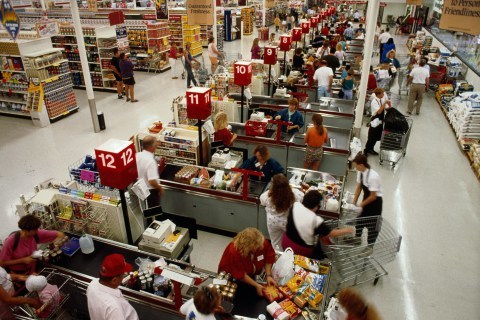Why is my line so slow?
 We often wait on checkout lines at the grocery store, and look around to see that other lines are going faster than ours. Suppose your grocery store has five lines, what is the chance of this happening?
We often wait on checkout lines at the grocery store, and look around to see that other lines are going faster than ours. Suppose your grocery store has five lines, what is the chance of this happening?
Note: By "this", it means "some other line is faster".
This section requires Javascript.
You are seeing this because something didn't load right. We suggest you, (a) try
refreshing the page, (b) enabling javascript if it is disabled on your browser and,
finally, (c)
loading the
non-javascript version of this page
. We're sorry about the hassle.
Since there are 5 lines and you chose 1 of them then, assuming equal likelihood of each line being fastest, there is a 1/5 chance that you picked the fastest and therefore a 4/5 chance that you did not.